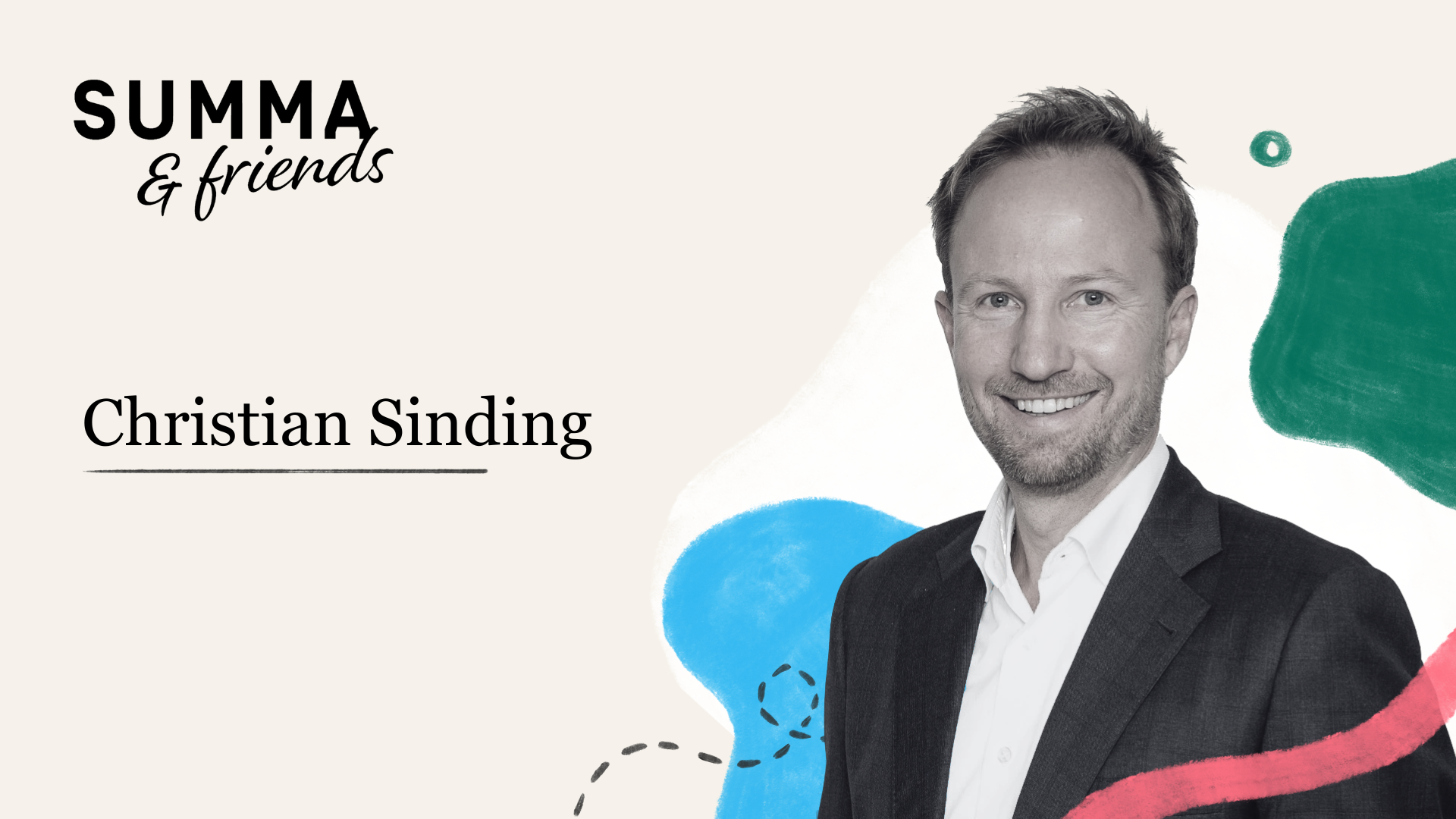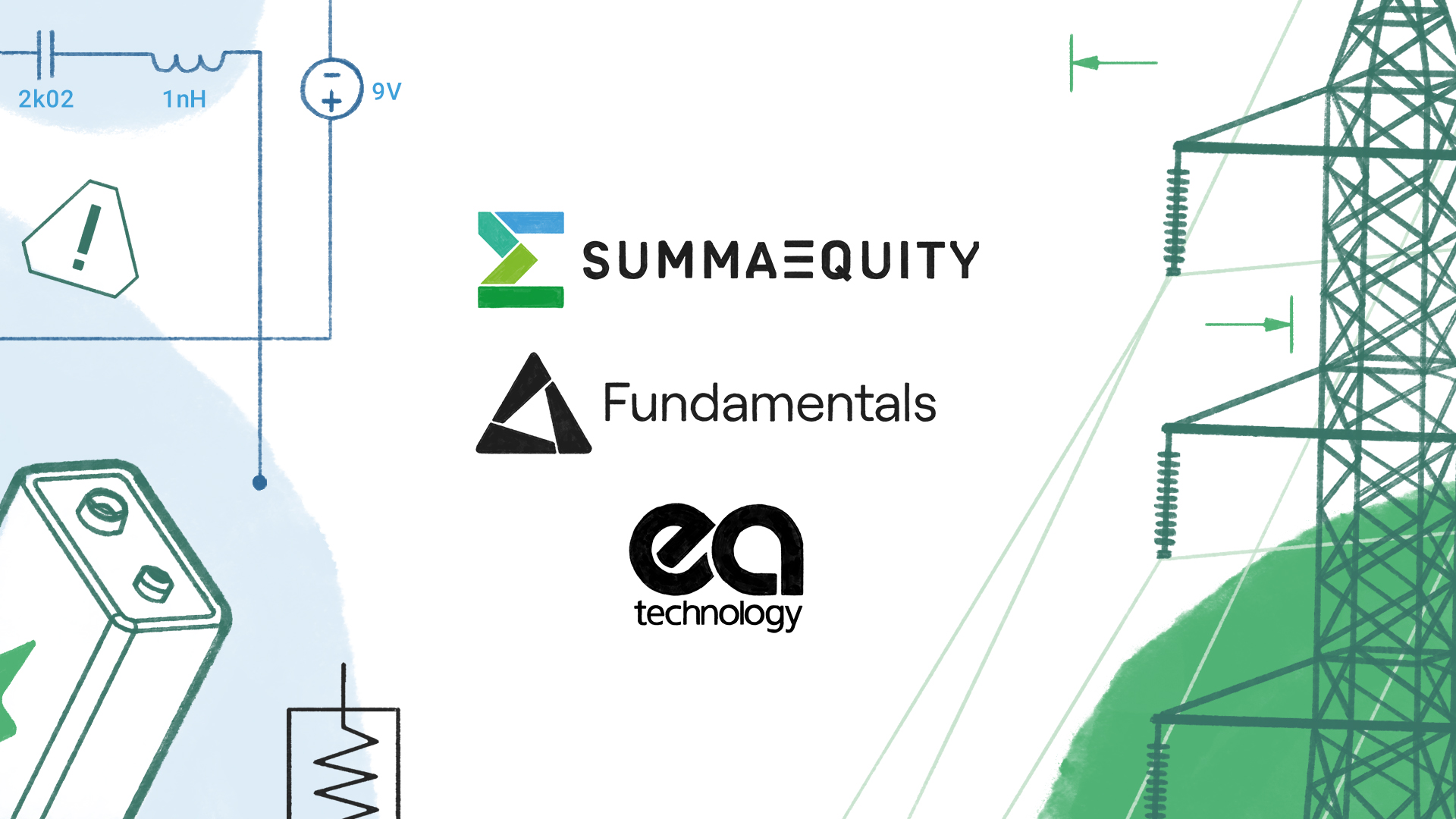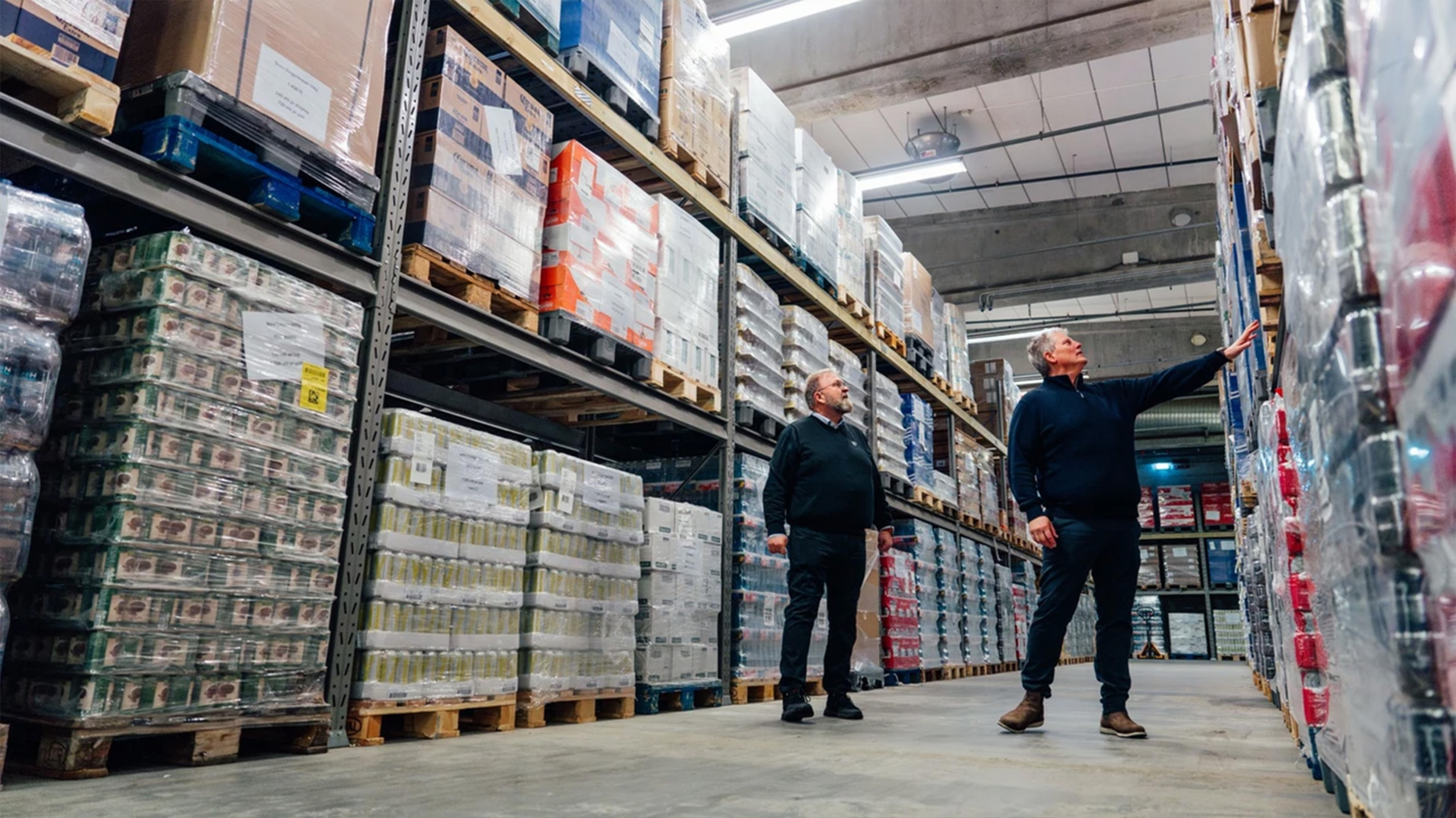How the Private Equity Industry is Helping Solve Global Challenges with EQT CEO, Christian Sinding
We have little time to change the incoming tide that is the climate crisis, but failure to act at all will only expose us to extreme weather events, acute food and water insecurity, biodiversity loss, and economic and social instability. We all need to act now – we all have a part to play.
But how?
- Podcast
7 min read

Episode 2
In this latest episode of Summa & Friends, Reynir and Vesna are joined by CEO and Managing Partner of global investment firm EQT, Christian Sinding, who shares how EQT are on a purpose journey to close the saying/doing gap.
Why private equity firms can make a positive change
The private equity industry isn’t renowned for helping solve some of society’s most pressing problems, but then most companies that operate in it aren’t global investment firm EQT.
However, says Reynir Indahl, CEO of Summa Equity, “the natural tendency of private equity is to improve companies. And as long as the company is fulfilling a positive purpose in society, that is something that will [naturally] happen.”
So what superpower does the private equity world have that can help tackle impending global challenges?
According to Christian, private equity firms have the capital, the governance model and the tools to drive positive transformation or at least seek out better solutions to the problems.
“The superpowers are there. And it’s rather, how do we activate them? What’s the magic potion that will make everybody drink it and see that we actually have it all?”
The resistance to ESG
Rather than rushing to embrace ESG and see it as a positive goal, many people feel that ESGs are restrictive, that they’re controlling, that they’re regulatory. But that’s not their purpose, says Christian. When you drive positive change through the lens of ESG, you’re going to make companies more valuable, as well as help future proof them by including ESG strategies and goals.
This in turn will create more positive financial returns. It’s the change that people are afraid of and resist, says Christian, actually taking action is understandably scary. For example, EQT owns the largest ferry company in Norway, and they’re committed to electrifying the entire fleet.
“We’re going to the next level of innovation, which is actually creating the first hydrogen based ferry in the world. And of course, that’s scary, it’s scary for the board, it’s scary for the owners and it’s scary for the management to commit to such an agenda.”
But, says Christian, rather than fearing the change and using it as an excuse not to do it, they’re choosing to think about the bigger picture. When they’ve converted their entire fleet of ferries they’ll have a future proof business, a company with innovative new products, an energized workforce, happier clients and a cleaner environment.
Positive transformation like this is big and unknown, but it isn’t something to be feared, says Christian. It’s a real win-win among stakeholders, you just have to have the guts to do it. And you have to be authentic and genuine with your sustainability plans.
Too many firms, agrees Reynir, greenwash their activities, and it’s apparent to all involved what they’re doing. Their ESG efforts aren’t authentic or genuine, they’re purely for PR purposes, they’re not designed to help anyone other than themselves.
People see straight through this.
The problem with our current approach
There is no better time than the present to take action.
Just look back over the events of the last few years, says Christian, the pandemic was a grey swan event, it wasn’t off the charts, but no one was prepared for it. No countries, no companies. Everyone knew it was a possibility, but no one thought it would happen.
And now there’s war on the borders of Europe in our lifetime, which is feeding rising inflation and affecting supply chains. We all knew there was a risk, but again, no one was prepared for it.
“And the knee jerk reaction is okay, now we have to rebuild our fossil based fuel sources. And what’s that going to do for the world? Nothing good. We should now accelerate investments into sustainable energy, because that’s the only thing that will keep us away from this kind of crisis, but at the same time, not ruin the world.”
Building sustainability into everything at EQT
EQT are on a purpose journey to close the saying/doing gap. But what does that mean?
A few years ago, Christian had a realization that there was a big gap between what EQT said they wanted to be doing, and what they were actually doing. So he set out on a purpose journey, with the aim of bringing everybody at the firm along with him. Firstly setting their purpose – to future proof companies and make a positive impact.
“We’ve taken this journey with the executive committee and all the different investment committees and teams and operations at EQT. And every single team has been through a journey.”
They’ve received input from Paul Polman at Unilever, they’ve shifted mindsets and put themselves into the future, saying OK, in 10 years time, will we be one of the positive influencers or positive action takers in this movement? Or are we going to let someone else take the lead?
“We’ve started setting goals, very concrete goals. We started with very simple diversity goals and emission goals. We said every single company has to drive more diversity. And we set a simple goal that every single company we own has to move to renewable energy.”
They’ve since linked compensation to sustainability goals, putting financial targets behind them, so that people can see the impact their efforts are having.
“We measure the financial return on our investments in the product with the internal rate of return. The external rate of return is what’s the return for society from our companies? I do believe that those are getting more and more aligned.”
Challenging CEOs of other private equity firms
So what can other CEOs learn from Christian and the team at EQT?
Other CEOs need to dare to have honest conversations about where they are and what their gap looks like, says Christian.
“Having the guts to both show your vulnerabilities and then go for the change. That’s what would be my challenge.”
At EQT, for example, they have a vision, a goal, of having 40% diversity on the board. They’re currently at 27%. Which might not sound like much, but a few short years ago, they were at 2% and only one in six partners is female. But it’s about being honest and having these realizations that this is where you are, says Christian, and knowing where you want to go. Don’t greenwash things. And don’t be afraid to be vulnerable and truthful about how far you still have to go.
What the world needs most right now
The world needs peace right now, says Christian, with all the strife happening around us, we need to be able to cooperate across borders, across companies and industries, between business and society.
That’s peace in the non-warring sense, and peace in the broader sense. If we don’t have one, we aren’t going to be successful in making the planet healthier, more peaceful for future generations.
“To me, it’s about understanding that for us as owners, to actually take the responsibility, the opportunity to make companies more sustainable for the long term will actually meet all of our goals. And we need to find solutions to those problems that we haven’t yet solved. And those solutions have to be in line with what the planet and society needs.”
The Summa Summarum newsletter
Sign up to our newsletter
Latest readings
News
From toxic to thriving: Europe’s water health at a breaking point
Read more
Summa Equity acquires Dignio
Read more
EA Technology acquires Fundamentals Ltd
Read more
Summa Equity acquires Peoplesafe, a leading workforce safety provider
Read more
Holdbart and Summa Foundation donate NOK 2 million to support food access in Norway
Read more